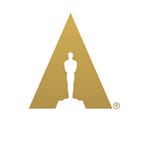What Film History Can Teach Us
Discussing feminism and gay rights with our 2018 grant recipients
Each year, the Academy Film Scholars grant program supports new works of film scholarship from around the world. This year’s recipients, Glenn Frankel and Keri Walsh, are undertaking book projects that shed light on often overlooked parts of film history. Frankel’s book will focus on the Oscar-winning film Midnight Cowboy, its makers and the time in which it takes place. Walsh’s tackles Method acting from a feminist perspective. Meet this year’s Academy Film Scholars.
Keri Walsh has been a lifelong fan of Hollywood films, but it wasn’t until she became historian P. Adams Sitney’s graduate teaching assistant at Princeton that she was exposed to European cinema classics and American avant-garde works. Now an associate professor at Fordham University, with several publications under her belt, Walsh turned to the Academy for support in her latest endeavor.
“Stella’s Claim is a history of women Method actors on film,” Walsh said.
“What I have discovered is that female Method performances are distinct in various ways. Women Method actors too were rebelling against gender norms inflicted on them, just as male Method actors were. But they were facing different norms.”
Method acting empowered many female actors in the 1950s, Walsh explained. “I want the work of these fascinating and impressive screen actors recognized. They were important figures in clearing a space for there to be actors like Frances McDormand or Viola Davis or Meryl Streep.”
“There is power in their realism.”
Walsh’s book aims to expand the current general knowledge of the well-known acting technique.
“The Method is such an influential idiom in American film acting, but we actually don’t know its range very well at all,” she said. “We tend to think it’s a sexist tradition, and to forget about all of these women’s work.”
“When you Google the phrase ‘women Method actors,’ what comes up is a list of eight men! There have always been women Method actors on film: we just didn’t know how to look for them.”
Given the rise of #MeToo and Time’s Up, Walsh believes there are lessons to be learned from these figures today.
“Women Method actors of the mid-twentieth-century, with their high artistic ideals, their insistence on acting range, realism, substance, intellect and freeing themselves from the pressures of glamor, are good mentors for such a moment,” she said.
“I want to show that Method acting has much more of a feminist history than we think.”
Walsh hopes the book serves as a positive influence within the industry. “After reading this book, I hope female actors and filmmakers will feel that they have a tradition of their own to call on here,” she added.
With the support of the Academy, she plans on completing her book and finding that “broader podium from which to promote the achievements of Method women — and to share other forgotten feminist chapters in Hollywood history.”
For years, author and journalist Glenn Frankel has been writing books “that explore the making of great American classic movies in the context of the times in which they were made and reflect.” After focusing on films like High Noon and The Searchers, Frankel turned to New Hollywood. His latest project follows the making of Midnight Cowboy (the novel and film) in the context of New York in the 1960s and “a country just on the verge of a huge breakthrough in one of the major civil rights movements: gay liberation.”
There are no books on Midnight Cowboy, Frankel noted, yet there is so much to learn from the film: about history, media and sexuality.
“I started out just being intrigued by the movie itself and the incredibly interesting, creative, flawed people who made it,” he said.
“Gradually, I feel like I’ve established a foothold in this curious sub-genre, because I’m not just writing about the making of a movie. I’m also writing about the making of a country and of our modern history.”
According to Frankel, John Schlesinger’s Midnight Cowboy, the only X-rated film to win a Best Picture Oscar, depicts “an intimate story of two lonely, misplaced human beings and the kind of people we almost never see in movies or in books or on the pages of newspapers; people who are ignored.”
That perspective, paired with its commentary on the era, makes Midnight Cowboy “a very ambitious kind of film.”
“I think, for modern filmmakers, it’s an example of how far you can stretch if you’re willing to take risks.”
Frankel has applied for a Film Scholars grant in the past, and he is thrilled to receive an endorsement of his work this year. “It’s such an honor for me because it’s recognition that what I’m doing is significant and that it has a contribution to make.”
While not a filmmaker himself, Frankel has learned the ins and outs of the industry, and what history can teach filmmakers and film lovers today.
“The best I can do, and try to do, is talk to people who do know about movies,” he said. Through the process, he has learned the immense value of collaboration.
The making of Midnight Cowboy involved weeks of rehearsals and improvisation on the actors’ part. And the screenwriter, Waldo Salt, was on set “virtually every day of the film shoot.” Despite changes in filmmaking technology, “Midnight Cowboy is a great blueprint for how to make a collaborative project and a great argument for getting the most creative, complicated people you can involved.”
Overall, Frankel noted, “the work of film scholarship has much to offer working filmmakers today.”
“Studying the industry’s past gives us an idea of who we are.”
As academics, historians and filmmakers, he said, “we’re all looking at the past for clues about how to do our work and how to live today.”
Learn more about the Academy Film Scholars program here.
